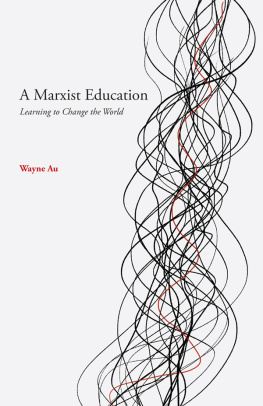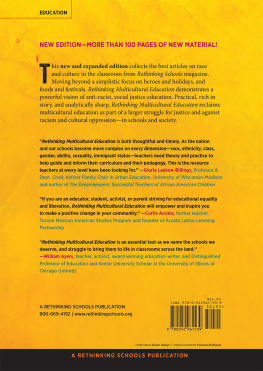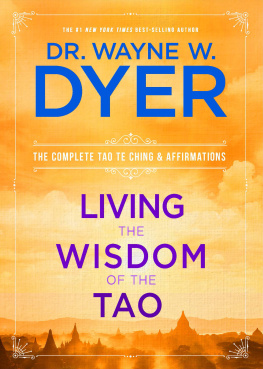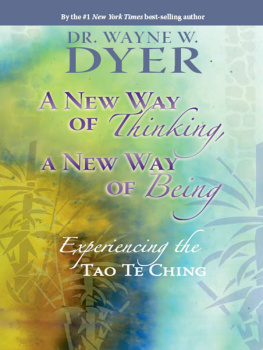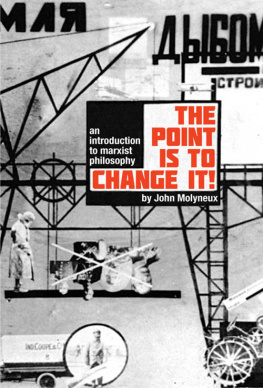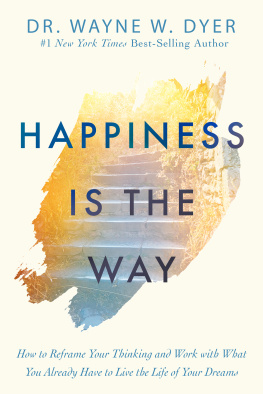Wayne Au - A Marxist Education: Learning to Change the World
Here you can read online Wayne Au - A Marxist Education: Learning to Change the World full text of the book (entire story) in english for free. Download pdf and epub, get meaning, cover and reviews about this ebook. year: 2018, publisher: Haymarket Books, genre: Politics. Description of the work, (preface) as well as reviews are available. Best literature library LitArk.com created for fans of good reading and offers a wide selection of genres:
Romance novel
Science fiction
Adventure
Detective
Science
History
Home and family
Prose
Art
Politics
Computer
Non-fiction
Religion
Business
Children
Humor
Choose a favorite category and find really read worthwhile books. Enjoy immersion in the world of imagination, feel the emotions of the characters or learn something new for yourself, make an fascinating discovery.
A Marxist Education: Learning to Change the World: summary, description and annotation
We offer to read an annotation, description, summary or preface (depends on what the author of the book "A Marxist Education: Learning to Change the World" wrote himself). If you haven't found the necessary information about the book — write in the comments, we will try to find it.
Wayne Au: author's other books
Who wrote A Marxist Education: Learning to Change the World? Find out the surname, the name of the author of the book and a list of all author's works by series.
A Marxist Education: Learning to Change the World — read online for free the complete book (whole text) full work
Below is the text of the book, divided by pages. System saving the place of the last page read, allows you to conveniently read the book "A Marxist Education: Learning to Change the World" online for free, without having to search again every time where you left off. Put a bookmark, and you can go to the page where you finished reading at any time.
Font size:
Interval:
Bookmark:
A Marxist Education
A Marxist Education
Learning to Change the World
Wayne Au

2018 Wayne Au
Published in 2018 by
Haymarket Books
P.O. Box 180165
Chicago, IL 60618
773-583-7884
www.haymarketbooks.org
ISBN: 978-1-60846-906-2
Trade distribution:
In the US, Consortium Book Sales and Distribution, www.cbsd.com
In Canada, Publishers Group Canada, www.pgcbooks.ca
In the UK, Turnaround Publisher Services, www.turnaround-uk.com
All other countries, Ingram Publisher Services International,
This book was published with the generous support of Lannan Foundation and Wallace Action Fund.
Cover design by Jana Vukovi.
Library of Congress Cataloging-in-Publication data is available.

Chapter 1
I Am My Relations
Becoming a Marxist Educator
I have been scared to write this book, for a long time and for a lot of reasons. Part of my fear comes from my understanding of US history, and that here in the heart of the empire and in one of the centers of global neoliberalism, capitalist ideology and economics reign supreme. The powerful have worked hard through textbooks and the media to construct a commonsense understanding that capitalism is a normal, if not progressive, manifestation of natural human relationsan inevitable outcome of human evolution. For those of us living in the United States, this hegemonic, pro-capitalist common sense is built on a constructed historical memory that is at once anti-communist, anti-socialist, and anti-Marxista fictive national narrative that both individual freedom and societal equality can be attained through self-interested competition, while completely disregarding structural and material inequalities.
The 2016 election of Donald Trump as president of the United States has also heightened fears of right-wing attacks. The mass hysteria of the Red Scare and McCarthyism of the 1950s that once felt so far off is now suddenly and intimately close to us again as the new American proto-fascists rise to power, as we face leftist professor watch lists, death threats made against socialist professors, talk of imprisonment for flag burning, proposals for Muslim registries and incarceration camps, threats to immigrants, attacks on the rights of women and the LGBTQ community, and promises to dismantle the public sector in the name of the free market. The white nationalists in power and the ruling class that is supporting them are firmly drawing the definition of what is American and entrenching whiteness, maleness, Christianity, heterosexuality, and free market capitalism as the only acceptable currency of the land, all else be bankrupt or be damned.
My fears are also grounded in my own awareness of profound political misunderstandings of Marxism by those around me. I work a lot with liberal and progressive activists in education organizing, as well as in my professional capacity as an education professor. Together we have fought back against various free market educational reforms, from high-stakes testing and standards, to charter schools, to private school vouchers, to school closings, to corporate curriculum, to mayoral control of school districts, to public school (de) funding. There is an angst among these allies. They feel an alienation from a system of education that so clearly does not meet their childrens or their communities needs, and they feel the loss of power and of democratic governance that comes from neoliberal models of deregulation and market competition.
However, because of the pervasiveness of anti-communist, anti-socialist, and anti-Marxist common sense in the United States, many of these allies are fearful of crossing a threshold of understanding that our critiques of these reforms are, fundamentally, deeply rooted critiques of capitalism and its shaping of our entire system of public education. It sometimes seems that, for these allies, even though they see and acknowledge all of the inequalities around us, critiquing capitalism is just too far beyond their horizons of acceptable or feasible options within the struggle for educational justice. This fear (and denial) then preempts any discussion of how, if we truly intend to create a system of education built on the fundaments of justice and equality, we must attack and overthrow the very system that our schools are built on, one that is predicated on and requires injustice and inequality. These liberal and progressive allies have not read, or even entertained reaching for, Marx and Marxist critiques of capitalism, leaving ample room for misunderstandings, misconstructions, and mistrust of Marxism.
As I discuss later in this chapter, I grew up with a communist father with connections to some cadre organizations. This has meant that I am also fearfully aware of the Lefts history and practice of cannibalizing itself, posturing about who is the most radical, and rupturing under harsh critique. While I strongly believe in struggleand I mean difficult struggle over political differences and understandings (the kind of struggle I learned about from my father)I have seen enough allies and comrades torn down to know that almost anything I write within the broad framework of Marxist analysis will inevitably come under attack from both the Right and the Left. For this reason there are a lot of topics that I purposefully dont expound upon or take up here. There are tomes written on various left ideological fights and political lines, and my strategy has always been to start with Marx and dialectical materialism, letting my analysis extend from that as a base, and staying above the fray.
My trepidation to write this book extends, in part, from my position in the academy. If Marxism is not particularly popular among US academics these days (although internationally, critical, Marxist perspectives do not earn the immediate shock and repulsion that they do in the United States), this is certainly the case within educational scholarship. Mostly, work explicitly announcing itself as Marxist isnt taken seriously and is seen as too fringe to be legitimate. I remember vividly how one of my faculty advisors at the University of WisconsinMadison tried to warn me against openly writing in the introduction to my book on high-stakes standardized testing, Unequal by Design, that my analysis was guided by Marxism.and how I should come out as a Marxistclearly still linger. That was just one instance, but there are countless others where, in the academy, being a Marxist is too far out of the bounds of scholarly legitimacy for liberal and progressive professors (let alone the conservatives) to handle. So Ive been very strategic about how I position myself within educational scholarship, in order to maintain my legitimacy as a real and serious educational scholar without sacrificing my political integrity. Conversely, I havent purposefully hidden the Marxist foundations of my research, and anyone who is paying attention should know their importance to my politics, writing, and speaking.
But fear is not the only emotion Ive encountered in writing this book. Importantly, I have also felt hope and uplift. As I write, Donald Trump has taken over as the president of the United States. White supremacist-nationalism is rising, with violent attacks and public hate speech increasing seemingly every day. Anti-LGBTQ laws are being pushed with new vigor in some states. The attacks on womens bodies and their right to choose have been ratcheted up. Trump has repeatedly tried to ban the entry of immigrants and refugees from countries that are predominantly Muslim. Talk of building a wall between the United States and Mexico has resurfaced with new vigor. Discussion of spreading conservative Christian values through public school vouchers are being taken more seriously in the halls of the White House. Trump has repealed the Deferred Action for Childhood Arrivals (DACA) program that protected so many of our immigrant students and their parents. Victories stalling the Dakota Access Pipeline have proven to be fleeting, as the new administration renews its commitment to supporting Big Oil. Laws are being proposed to make protesters liable for the costs of the anti-protest police forces and to make resisting arrest a hate crime against the policeall in direct response to mass actions taken by organizations like #DisruptJ20, the powerful 2017 Womxns marches against the Trump presidency, the #NoDAPL resistance, and the #BlackLivesMatter protests of the last several years. These dire times have sparked an upsurge in activism and protest that is heartening and full of revolutionary potential, and I think a new generation of teachers could build upon this radical momentum by helping their students explore and consider Marxist and socialist ideas. This fact speaks to why I am writing a book on Marxism and educational theory right now.
Next pageFont size:
Interval:
Bookmark:
Similar books «A Marxist Education: Learning to Change the World»
Look at similar books to A Marxist Education: Learning to Change the World. We have selected literature similar in name and meaning in the hope of providing readers with more options to find new, interesting, not yet read works.
Discussion, reviews of the book A Marxist Education: Learning to Change the World and just readers' own opinions. Leave your comments, write what you think about the work, its meaning or the main characters. Specify what exactly you liked and what you didn't like, and why you think so.

